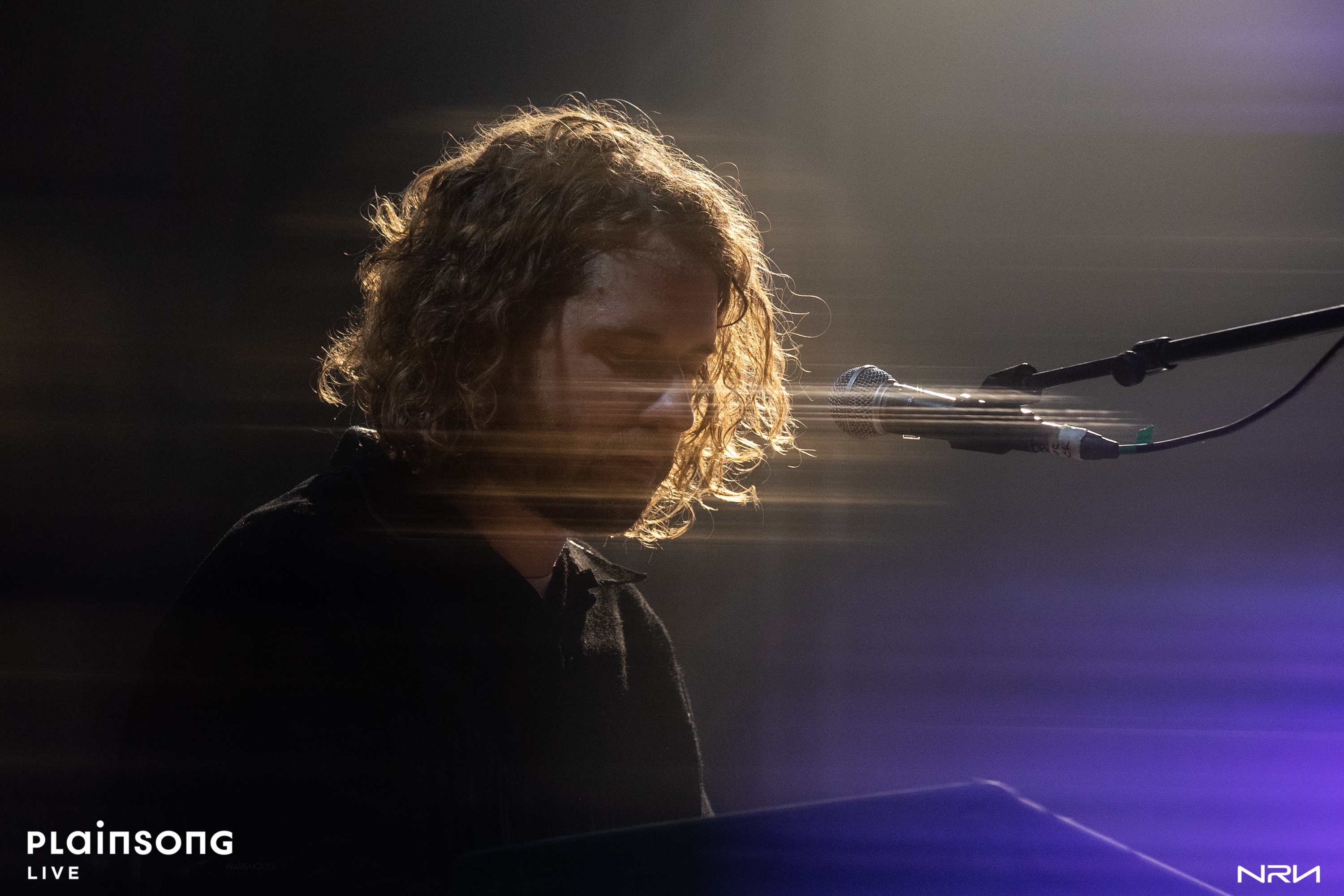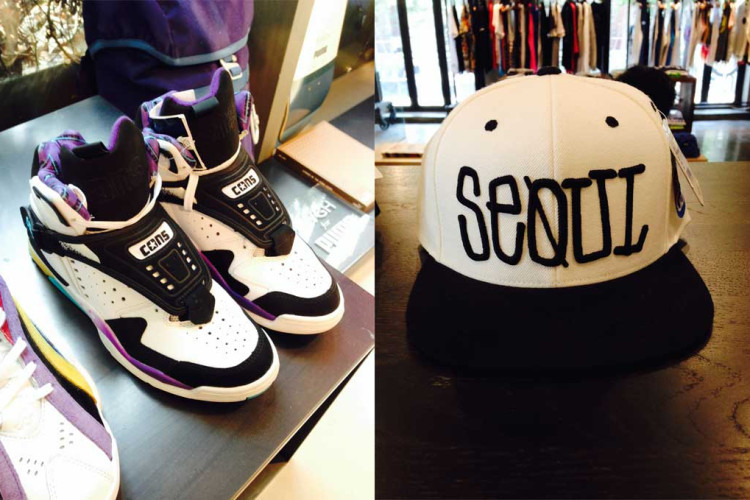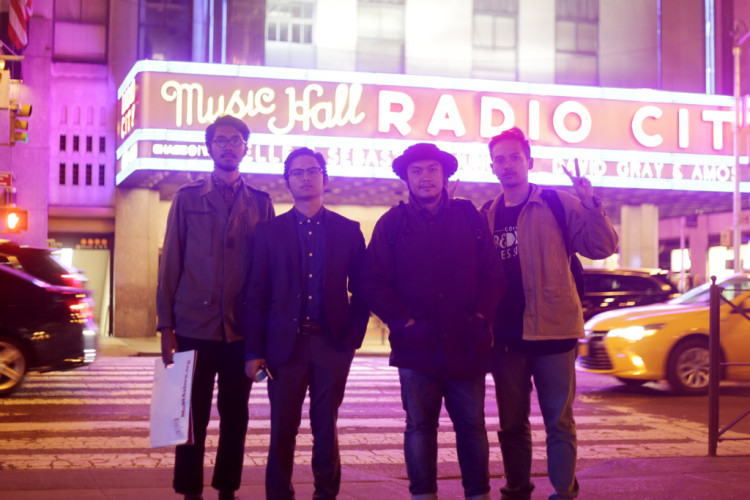
On Music as a Means to Make Peace with Whom We’ve Lost with Kevin Morby
We had a chat with Kevin Morby around his creative process in churning a number of releases, his song that was featured in a show about a certain horse, and how morbid themes can actually lift someone up from the dumps.
Words by Whiteboard Journal
Words: Garrin Faturrahman
Photo: Narenda Kameshwara/Plainsong Live
The poster for Kevin Morby’s gig in Jakarta popped up with almost no prior hints, apart from an Instagram post (just a day before his gig announcement) which showed his “Beautiful Strangers” on top of snippets that did their part in teasing the audience for who to expect. Turns out, his concert at M Bloc Live House was held as a pre-party for Plainsong Live’s culmination event: Joyland Festival Jakarta 2023. Though a surprise, his gig here was certainly a welcome one.
Maybe “dynamics” is a good word that Kevin Morby plays with a lot in his crafts. Throughout his songs—as well as his live act—Kevin Morby exhibits his prowess in putting “dynamics” in his arrangements to good use as a vehicle to convey what he wanted to say, and that his lyrics touch upon the “dynamics” of our lives, most notably the part where its course comes to an abrupt halt: death.
Just hours before his gig, we managed to squeeze ourselves into his packed—and brief—schedule in Jakarta to have a short chat. There, we conversed a bit on how he views his creative process, one of his songs that was featured on a show about a particular horse, and how being in a place of despair can actually help one in picking themselves back up.
I’ve read that you always had a strong sense of geographic location in your songs. During your brief time in Jakarta, did you try to tap into the city and found anything noticeably different in how this place feels that you’d like to point out?
I wish I had a little bit more time. It’s gonna be hard with limited time, but, usually, when I have time that’s so limited like today, I try to eat local foods and maybe walk around a little bit around the hotel or something. The venue, I think, will give me a good perspective as well.
You have always been very active in churning out albums, to the point where you don’t leave out one year without releasing your work. How does your creative process go?
My creative process is usually just… it just sort of happens. It’s kind of something that I do, you know? Playing music for me is such a hobby, and I’m lucky that my hobbies become what I do for a living. So, it’s just something that I don’t really even think too much about. I just kinda do it all the time, you know? Since I was a little kid, constantly creating things so it’s just kind of this natural inclination for me.
And I think that’s why my output’s so much ‘cause I’m kind of just constantly working but, I don’t necessarily view it as working ‘cause it’s just natural doing what I do.
With your extensive discography, I’d like to know your view on producing crafts: do you have some sort of attachment with your releases, or do you just “cut-ties” with a release right after it’s out there in the open?
That’s a great question. I love all my albums—almost like they’re children, and you love each one, you know? You love the first one in a specific way, and you love the middle child in a specific way, and you love the latest one in a specific way. But, you kinda exist in this magical world of your album, and once they’re released… they’ve become something different. They become [something that] belongs to the people, they don’t really belong to you as much, it’s kinda like you give them away.
So, I love all my albums, but once they’re out into the world, I love them in a different way, if that makes sense.
On that note, would you like to share which release of yours “affected” you the most?
It’s hard because… that’s why I use “children” as an analogy because it’s like, you love them all sort of equally in this way. But, you know, the first one is always really important because that’s kind of the one that began it all, my album Harlem River. I’ve a record called Singing Saw, my third album, which really kind of brought in my audience. And, my last album meant a lot to me: I made it during the pandemic, so, it was kind of this significant time and all of our lives when I made it. City Music I made with a couple of my really good friends, Sundowner I kind of made in this solitude time [and] space, so I just sort of love them all equally.
Unfortunately, I don’t love my second album that much, so… maybe it’s more about the one’s I don’t love as much. I don’t love my second album as much as the other one.
So, where is “Still Life” today? As we age, it becomes a lot clearer that we come across “loss” a lot more—up until accepting the fact that everything will pass as we pass the many transitions in life. Do you still have the same approach towards detachment and severance as you did in “Still Life”?
Yeah, I guess so. I mean, as I get older, my just opinion about everything sort of changes a little bit. It becomes in some ways easier to be nostalgic, but in some ways I’m not as nostalgic as time keeps moving on. But yeah, I still feel attachment to stuff, but as time goes on it’s almost about “what can I even remember?” You know? My memory bank is just getting… it’s gotten so much at this point that it’s almost hard to remember how I feel about every exact thing.
And sometimes it’s funny because, you know, an album… It’s a record of a place and time. So, sometimes I’m singing about things that happened to me almost ten years ago, and they almost seem a little silly or… you know, like “oh wow I gotta go out and sing that song about the way I felt about a situation so long ago,” and you gotta keep on revisiting these old thoughts which is kind of interesting.
On the topic of “Still Life”, one of your pieces from that album, “Parade”, was featured on Bojack Horseman as an ending song for one of its episodes. What was the story behind your song being used in that series?
The producers just liked it! I didn’t know anything about the TV show, actually. The people making it offered to pay me money to put it in the show, and I said yes, and then it seemed like it was this significant episode—a lot of people came up over the years, saying how much they loved that episode and that song, so… It worked out.
I only watched that episode. So, I don’t really know what was happening but I know that people loved it.
How did you see “Parade” in that show?
It’s really cool! When I see my music in media like that, or movies, or on commercials, it’s really neat just because growing up I never thought that I’d have something that would be a part of the world in that way. It’s really special. It’s flattering that they’d wanna use my music for their art. It’s a cool sort of way of collaboration when your art is helping out someone else’s art.

(Credits: Narenda Kameshwara/Plainsong Live)

(Credits: Narenda Kameshwara/Plainsong Live)

(Credits: Narenda Kameshwara/Plainsong Live)
Death has been a recurring theme in your songs. What’s your take on writing songs on/for deceased ones? Does it help in letting go, or does it help in making peace with death as part of our fleeting lives?
I think both of those things, in its sort of… “death is kind of this great unknown”, so it’s… I’ve used music as a form of therapy, so it’s therapeutic to sing out these feelings I might be having, and yeah it does help you make peace and also let go with people whom you’ve lost.
I’ve used music as a form of therapy, so it’s therapeutic to sing out these feelings I might be having,
I think that’s a big part of why I write about that subject a lot. It’s my way of working out feelings.
I’ve read that during the early days of the pandemic, you opted to go to “the darkest place possible” and went to Memphis, a place which witnessed a number of morbid and historical events—which later helped you bring out “This Is A Photograph”. I resonate greatly with this story of yours: the preference to gravitate towards some place dark during crippling times. What actually drives such a penchant for confining oneself somewhere bleak?
Again, I think it’s kind of… facing the unknown, you know? When you hear of places that can be a certain way, it’s kind of good to go and face your fears and see for yourselves a little bit. Also, a place like Memphis just has such a history of despair, tragedy, and because we were bound to the pandemic and because it seemed, at the time, the whole world was collectively feeling those things, it felt comforting to go to a place that almost felt like it knew how to handle tragedy, or handle hard times, and it survived all these hard times. It felt like a resilient place that I could go to, if that makes sense.
People are strong there, and I wanna be around that strength.
I’ve never been to Memphis—nor the United States—before. Can you describe to me what it is like over there and how it helped you write?
It’s just this sort of intense place, I guess. There’s an intensity to it that runs through the city: the weather’s kind of intense, the crime can be intense, things like that—for an American city, especially, there’s a lot of divide throughout the city, in some ways. But, because of that struggle, there’s a lot of beauty, too. I find that often in places of struggle, there’s often a lot of beauty that sort of follows that struggle, and Memphis is certainly a place like that.
“I find that in places of struggle, there’s often a lot of beauty that sort of follows that struggle,”
Do you have anything to say for aspiring musicians here in Indonesia?
My advice to any musicians is to just play as much as possible. I think me and my friends who are lucky to be making a living [making music] and traveling the world—we never really had any expectation of doing that. I find that a lot of people making music nowadays go into a big expectations: they go and say “I wanna be famous, I wanna travel the world, and I wanna make a lot of money,” but I don’t think you can go into it like that. If you go into it like that, then you’re kinda setting yourself up for failure.
So, my advice to musicians is always just: if you really want to be doing it, just find a way to do it. I did it for a long time, with really little to no reward, with no one listening and now crowds, and eventually, little by little, it’s starting to pay off. So, my advice is to just keep doing it and then also recognize your successes—not every success is a huge success, you know? Maybe, your success is you played to two people last week, and then this week you played to three people. You gotta recognize it, though! Like, understand that everything takes time in this sort of one foot to the other and it doesn’t happen overnight—though often it does happen overnight, and it’s not a good thing. It’s good to just keep going, keep getting better, keep setting goals for yourself and meeting those goals. That’s kind of how I always do it. Just focus on the craft and the love for the whole thing, and nothing could go wrong.
In the spirit of Joyland Festival Jakarta 2023, we also recommended him some songs from bands that are up to perform here next November:
Sore – Musim Ujan
It’s great! I immediately loved it. Can’t go wrong with this.
It kinda reminds me of a Brazilian music that I love. So the song’s about the rainy season?
Yup.
I would listen to that on a rainy day.
Grrrl Gang – Mother’s Prayers
It’s great. I think people in America will like that.
Bayangan – Kuala Lumpur
I like the driving rhythm, I relate to that—the strumming is making [the song] sound like it’s going down the train tracks. And I like that it’s about a city (I trust that it’s about a city), I like singing about cities, so that’s great.











